Budgeting
- Staying on our budget has been very much on our minds lately with the ongoing inflation…and this caught our eye: “How a Catholic Family of 16 Lives Debt-Free” (Catholic News Agency).
- Jonathan and Amanda Teixeira founded Wallet Win: Your Catholic Money Mentors with a mission to help couples “eliminate debt, build savings, and change the world through generosity.”
Day of Rest
- In “What Should We Avoid on the Day of Rest?” (The Catholic Weekly), Fr. John Flader offers a helpful “101” reminder of the Catechism’s wisdom regarding the Sabbath.
- In “Workism Isn’t Working” (First Things), Michael Toscano provides thought-provoking thoughts about how warped our views of work have become.
Education
- Lisa Hendey offers a thorough and insightful “Guide for Families Considering Home Schooling” (Our Sunday Visitor).
Gardening & Food
- Check out Nancy Emanuel’s inspiring piece, “How to Plant a ‘Mary Garden’ During May” (The Arlington Catholic Herald).
- In “Soil and Soul” (The Arlington Catholic Herald), Soren reflects on the life and lessons of his late uncle.
- In “Old Trees, New Pears” (The Arlington Catholic Herald), Soren invites us to reflect on how we can use all the gifts and resources around us to make our Household Economy shine. The article includes some photos from the Johnson backyard.
- Elizabeth Bayardi considers “Food for Body & Soul: Honoring God by How You Eat” (LifeTeen).
Homemaking
- In Catholics in the Kitchen: Nurturing the Bond between Faith and Food by Alexandra Greeley, Trinity House Café is featured in the chapter, “The Café Evangelist.”
- Let’s not forget that Martha is a saint too! In “A Word in Defense of Martha” (The Catholic Thing), Alan Anderson writes that Martha often “gets something of a bad rap.”
- “Contemplation fills action with truth, goodness, and beauty,” writes Hans Boersma in “Both Active and Contemplative” (First Things), a challenging reflection on the Mary-Martha tension.
- St. Josemaría Escriva’s homily “In Joseph’s Workshop” is an inspiring reflection that can help us to meditate on the workspace of St. Joseph and Jesus.
- In “Thomas Howard and the Wonder of our Earthly and Heavenly Homes,” Noelle Mering remembers the late Catholic convert and English professor, Thomas Howard. She writes, “Tom’s study was regal and comfortable, filled with his books, a welcoming sofa, an old desk, and his wooden kneeler for prayer.” Here’s another article providing an overview of his life (Aleteia).
- In Thomas Howard: Chance or the Dance – Part 1, Tom Howard is interviewed in his own home by Eric Metaxas (Socrates in the City).
- We recommend Theology of Home II: The Spiritual Art of Homemaking by Carrie Gress and Noelle Mering with photography by Kim Baile.
- In “The Role of a Man in the Household” (Diocese of Arlington’s Searching for More podcast), Dr. John Cuddeback continues to challenge men to discover God’s call for them within the household. He says, “The household is the most natural context, for everything you are as a man is drawn out, and is challenged and called into its fullness…into what God is calling you to be.”
- Check out Tom Howard’s inspiring Hallowed Be This House: Finding Signs of Heaven in Your Home (Amazon).
- Theology of Home: Finding the Eternal in the Everyday by Carrie Gress and Noelle Mering with photography by Kim Baile offers a beautiful collection of photos, essays, and reflections on the sacredness of our homes.
- Has your home been blessed? Read more about the rite of the house blessing in “Blessing of a New Home” (Catholic News Agency).
Household Work
- “For Parents Finding it Too Difficult to Spring Clean” (Aleteia) includes this quote from author Marie Kondo, ““Up until now, I was a professional tidier, so I did my best to keep my home tidy at all times. I have kind of given up on that in a good way for me. Now I realize what is important to me is enjoying spending time with my children at home.”
- “Spring Cleaning and Easter Newness” (TeachingCatholicKids.com) includes some helpful pointers.
- In “An Autumn Resolution: Fill Your Barn, Then Rest” (Life Craft), Dr. John Cuddeback points out to us that “Autumn is naturally a time to complete the hard work of summer. We think in terms of wrapping up our projects and tying things down.”
- In case you need some structure, check out a “Fall Cleaning Checklist” (The Simply Organized Home) divided into indoor and outdoor categories and “Fall Home Maintenance Checklist: 20 Things to Do Every Year” (Family Handyman).
- In “The Spiritual Benefits of Chores” (Catholic Mom), Charisse Tierney writes, “The routine of daily chores during the week helps us to better make Sunday special and holy–a day set apart for God and family.”
- In “Chore Chart Refresh” (Catholic Mom: Holy Cross Family Ministries), Charisse Tierney offers some helpful guidance.
- We recommend “These 5 Household Chores Are Perfect Times for Prayer” (Aleteia) by Calah Alexander.
- Take a look at “Ode to Fall Family Work,” a post we wrote about preparing for winter, working together as a family, and celebrating Sundays.
- We could all use something like this “Easy Weekly House Cleaning Schedule” (Blessed Catholic Mom), which includes nuggets like this: “Do you say things like ‘I hate housework!’…Or, do you say things like ‘I am thankful for our home,’ or ‘We need to take care of the home and things God has given us?'”
- In “In Praise of Spring Cleaning” (Lifecraft), Dr. John Cuddeback asks, “How much time have I spent looking for a tool wondering where I put it last time when I was finished with it?” He encourages us to do “our best to instill an appropriate order in the material aspects of home life.”
- Wondering where to start? Here’s a one-page “Life Skills by Age” checklist (Of the Hearth: Faith, Family & Forging a Difference).
- “5 Tips for How to Get Your Kids to Do Chores” (Focus on the Family) includes this paradigm shift: instead of viewing chores as a burden, view them as a “family relationship builder.”
- “Avoiding the Chore Wars” (Focus on the Family) includes age-appropriate checklists, charts, and other great tools.
- On his YouTube channel – “Dad, How Do I?” – Rob Kenney offers simple videos that are how-to resources we all need to have on hand for Saturday Chore Days when we hit obstacles. In “Meet the Dad Who’s Teaching Basic Skills on YouTube for Kids without a Father Figure” (Aleteia), Cerith Gardiner shares Rob Kenney’s inspiring story.
- Dr. John Cuddeback’s “Reclaiming the Household” is an inspiring deep dive into the idea of “shared work” in the home.
- For an inspiring collection of articles on your household economy – the shared work of your home – check out Dr. John Cuddeback’s Life Craft site.
- In “Household Duties” (For Your Marriage), Mary Jo Pederson writes, “There is no one perfect solution to the problem of household duties, or any other marriage conflict…A marriage relationship is organic; spouses are always growing and changing as is the environment around them. Part of being faithful in marriage is being willing to try new ways of doing things when one way doesn’t work.”
- In “Whose Job Is It?” (For Your Marriage), Lauri Przybysz pinpoints the way that perfectionism can become undermining. She writes, “We can let go of our idea of perfection in order to accept the help of our spouse.”
- In “Saturday Morning Chores and Catholic Social Teaching” (Catechetical Review), Robert Kloska makes great connections between chores and the deeper teachings of gratitude, virtue, the common good, obedience, and sanctification.
- In “On Marriage and Relationships” (Word on Fire), Bishop Robert Barron speaks about “falling in love with a transcendent third.” The husband and wife do not find fulfillment merely in their love of one another or in running a household—but rather, in that they are both in love with God: “Together, we are in love with God,” a married couple can affirm. “God has for His purposes drawn us together so that we might find our salvation in each other’s presence, and that together, we might fulfill a common mission.”
- For an inspiring visual representation of the family work, check out this Russian Orthodox icon entitled “The Labor of the Holy Family” (Orthodox Christian Supply).
- Pope Francis repeatedly points out to us the simplicity of the everyday. He states, ‘Our God lets us understand that he always operates in simplicity, in the simplicity of the house of Nazareth, in the simplicity of everyday work, in the simplicity of prayer’ (3/16/20 homily as cited in Radio Veritas Asia).
Stewardship
- In “6 Ways to Make Charitable Giving Part of Your Year-Round Budget” (CNBC, Make It), Megan Leonhardt provides good food for thought regarding the planning part of giving. With regard to spontaneity, here’s an inspiring brief reflection on the generosity of Jacob: “Rare Generosity is Spontaneous” (eMite: Do Good Globally).
- “What Are Stewards in the Bible? Meaning and Importance of Stewardship” (Christianity.com) includes a list of verses mentioning stewardship.
- The Diocese of Charleston offers a number of resources entitled “A Spirituality of Stewardship.”
- Check out To Be a Christian Steward: A Summary of the U.S. Bishops’ Pastoral Letter on Stewardship offers a comprehensive overview of stewardship. The bishops write, “The life of a Christian steward models the life of Jesus.”
Temperance
- In this 5-page PDF on temperance (Diocese of La Crosse), you’ll get a great refresher course on how to strengthen temperance in your daily life. In addition to looking at how St. Thérèse of Lisieux demonstrated temperance, you’ll find practical suggestions that can help when you feel the next tug toward dopamine.
- In “The Virtue of Temperance Can Offer Life Balance” (Diocese of Little Rock), Paula Standridge writes, “Temperance is realizing when enough is enough of any of the worldly goods God has given us.”



